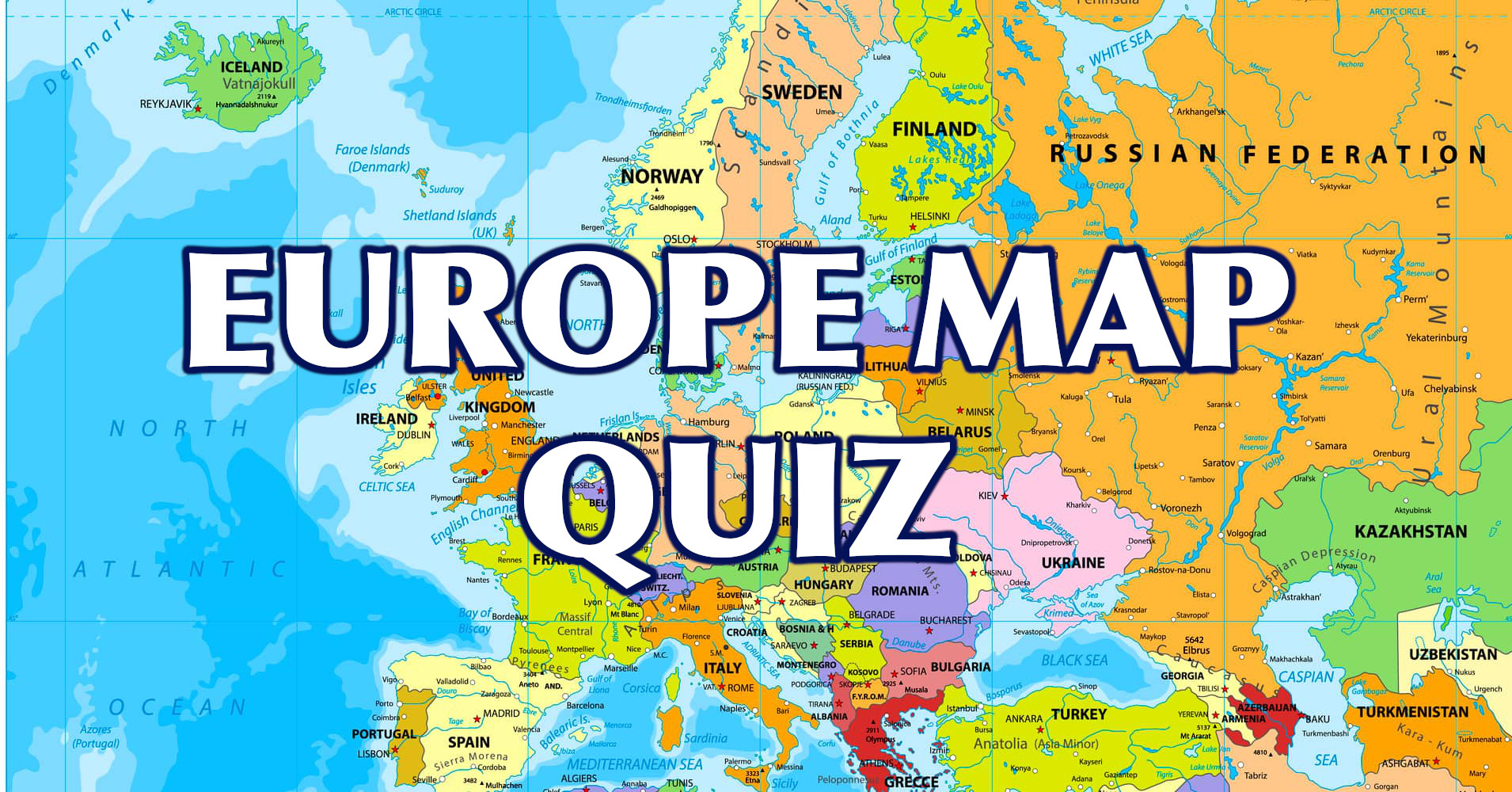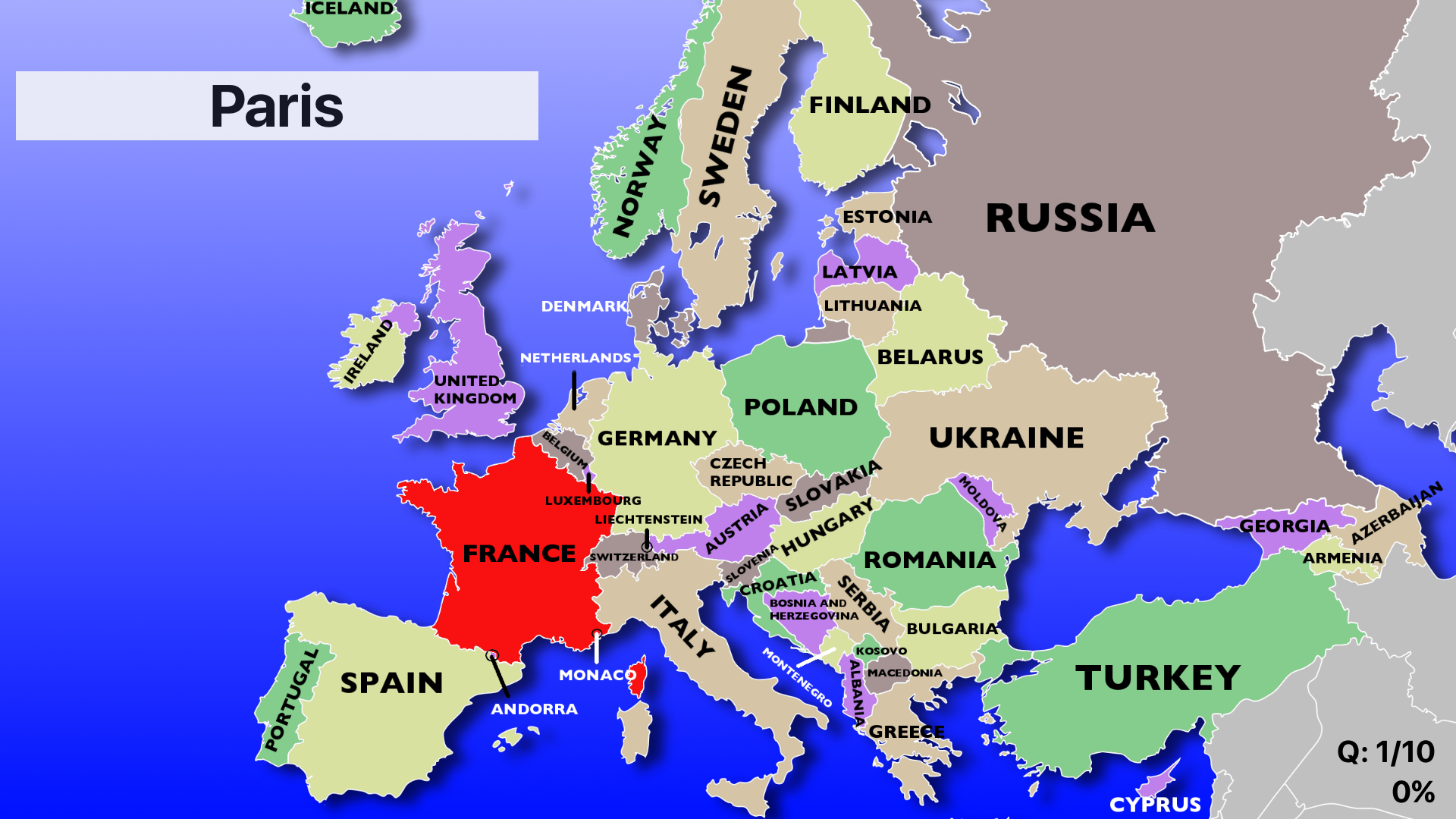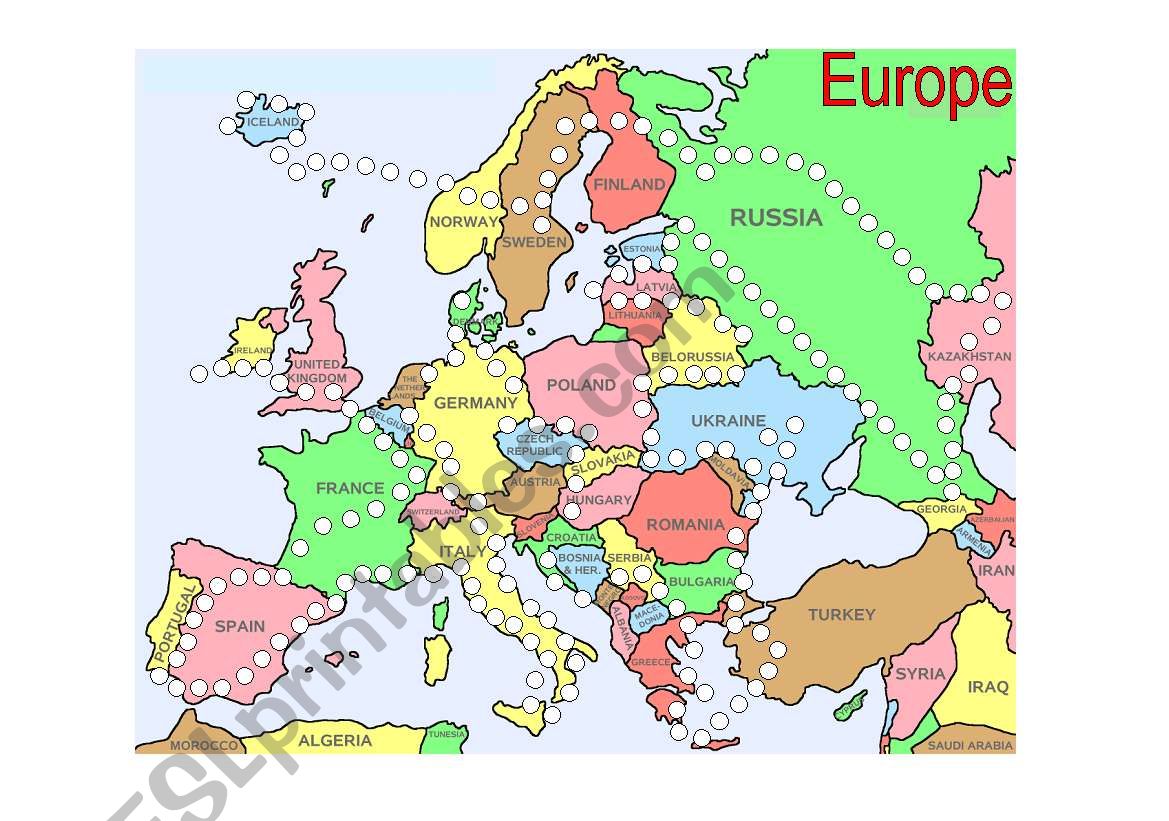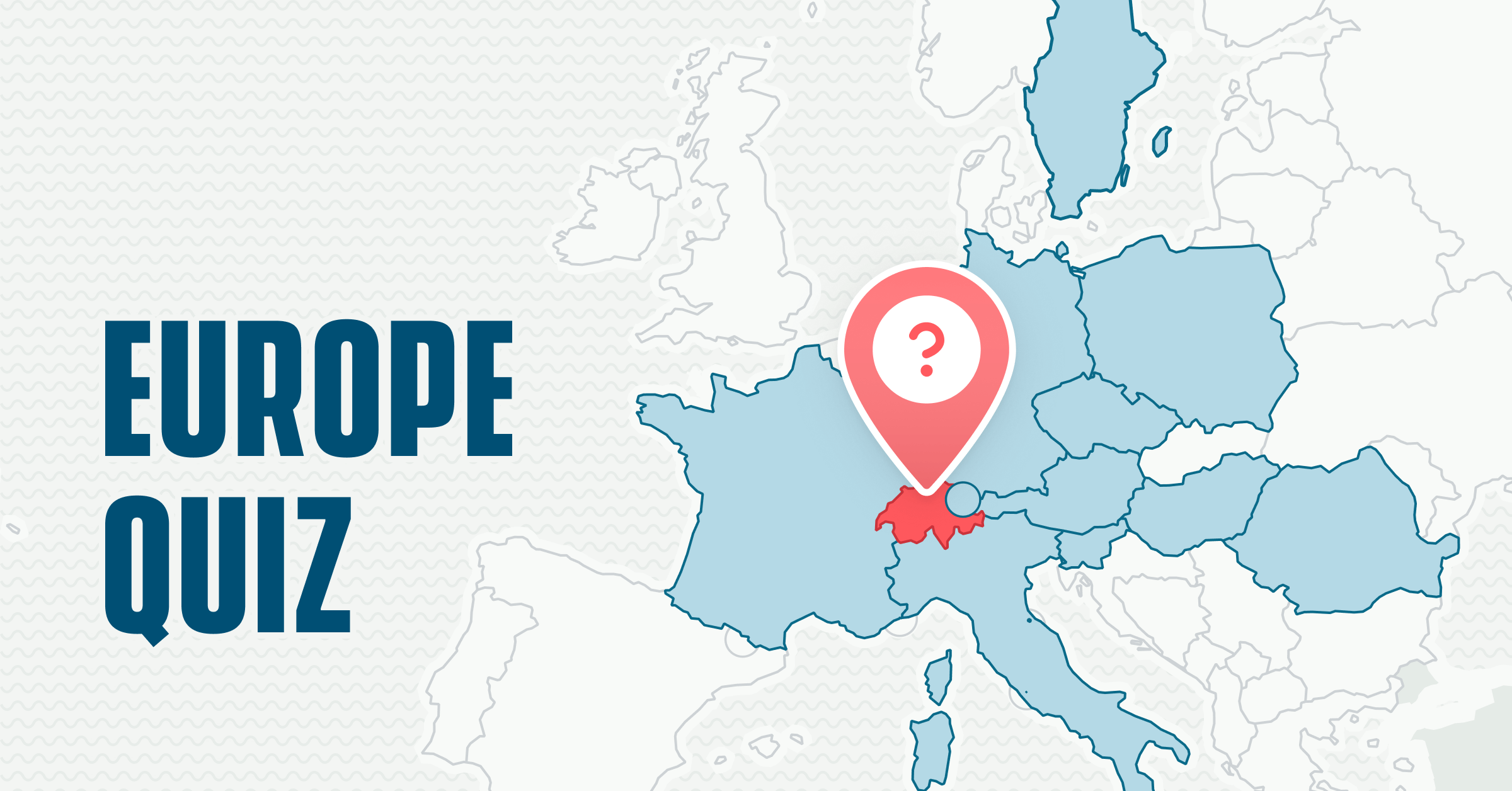4, Dec 2023
Navigating The Map: A Comprehensive Examination Of European Geography Quiz Game Cheating
Navigating the Map: A Comprehensive Examination of European Geography Quiz Game Cheating
Related Articles: Navigating the Map: A Comprehensive Examination of European Geography Quiz Game Cheating
Introduction
In this auspicious occasion, we are delighted to delve into the intriguing topic related to Navigating the Map: A Comprehensive Examination of European Geography Quiz Game Cheating. Let’s weave interesting information and offer fresh perspectives to the readers.
Table of Content
Navigating the Map: A Comprehensive Examination of European Geography Quiz Game Cheating

The allure of European geography quizzes is undeniable. They offer a compelling challenge, inviting players to test their knowledge of the continent’s intricate tapestry of nations. However, the temptation to cheat can arise, particularly for those seeking a quick win or struggling to retain information. This article delves into the multifaceted world of European geography quiz game cheating, exploring its motivations, methods, ethical considerations, and potential consequences.
Understanding the Motivation: Why Cheat in European Geography Quizzes?
The desire to cheat in European geography quizzes stems from a confluence of factors, each contributing to a perceived need for an unfair advantage.
- Performance Pressure: The pressure to perform well, particularly in academic or competitive settings, can drive individuals to seek shortcuts. This pressure might arise from personal ambition, external expectations, or the fear of failure.
- Lack of Knowledge: Individuals who feel deficient in their knowledge of European geography may resort to cheating as a means to compensate for their perceived shortcomings. This can be exacerbated by a lack of interest in the subject or insufficient study time.
- Time Constraints: When faced with limited time to complete a quiz, the temptation to cheat can increase. This is particularly true in high-stakes scenarios where time is a valuable commodity.
- Competitive Advantage: In competitive settings, the desire to outperform others can lead to unethical behavior. Cheating becomes a means to gain an unfair edge over competitors, potentially impacting rankings and rewards.
The Evolving Landscape of Cheating Methods:
The methods employed to cheat in European geography quizzes have evolved alongside technological advancements, offering a diverse range of options, both traditional and contemporary.
-
Traditional Methods:
- Hidden Notes: This classic method involves discreetly concealing notes containing information about European countries, often written on small pieces of paper or hidden within clothing.
- Pre-Memorized Information: Individuals may attempt to memorize answers beforehand, relying on rote learning or mnemonic devices to recall information during the quiz.
- Collaboration: Working with others during a quiz, sharing answers or providing hints, is a common form of cheating, particularly in group settings.
-
Technological Methods:
- Mobile Devices: Smartphones and tablets offer a convenient platform for accessing information during quizzes. Websites, apps, and search engines provide quick answers, enabling individuals to discreetly cheat without detection.
- Wearable Technology: Smartwatches and other wearable devices can be used to access information discreetly, leveraging their connectivity and functionality to provide answers during quizzes.
- Online Platforms: Online quizzes often present opportunities for cheating through the use of browser extensions, scripts, or other software that automatically provide correct answers or bypass security measures.
The Ethical Implications of Cheating:
Cheating in European geography quizzes, regardless of the method employed, raises serious ethical concerns.
- Academic Integrity: Cheating undermines the principles of academic integrity, which emphasizes honesty, fairness, and responsibility in learning.
- Fairness and Equity: Cheating creates an unfair advantage for individuals who engage in it, compromising the integrity of the quiz and potentially disadvantaging those who choose to compete fairly.
- Personal Growth: Cheating prevents individuals from developing valuable skills, such as critical thinking, problem-solving, and knowledge acquisition, which are crucial for personal growth and intellectual development.
- Trust and Reputation: Cheating can damage an individual’s reputation, leading to a loss of trust from peers, educators, and employers.
Consequences of Cheating: A Spectrum of Outcomes
The consequences of cheating in European geography quizzes vary depending on the context, severity of the offense, and the policies of the organization or institution involved.
-
Academic Settings:
- Failing Grade: Cheating in academic quizzes can result in a failing grade, potentially impacting a student’s GPA and academic standing.
- Suspension or Expulsion: In cases of serious cheating, students may face suspension or expulsion from the institution.
- Academic Integrity Record: Cheating incidents may be recorded on a student’s academic integrity record, potentially affecting future academic opportunities.
-
Competitive Settings:
- Disqualification: Cheaters may be disqualified from competitions, forfeiting their chances to win prizes or recognition.
- Reputational Damage: Cheating can damage an individual’s reputation within the competitive community, leading to decreased trust and future opportunities.
-
Professional Settings:
- Termination: Cheating in professional assessments or evaluations can lead to job termination, impacting an individual’s career prospects.
- Legal Action: In some cases, cheating in professional settings may result in legal action, depending on the nature of the offense and the laws governing the relevant field.
FAQs: Addressing Common Concerns and Questions
Q: Is it ever acceptable to cheat in a European geography quiz?
A: No, cheating is never ethically justifiable. It undermines the principles of fairness, honesty, and integrity, and it ultimately hinders personal growth and development.
Q: What are the benefits of studying European geography honestly?
A: Studying European geography honestly provides numerous benefits, including:
- Increased Knowledge: Acquiring knowledge about European geography broadens one’s understanding of the world, fostering cultural awareness and appreciation.
- Critical Thinking Skills: Studying European geography encourages critical thinking, enabling individuals to analyze information, draw connections, and make informed decisions.
- Problem-Solving Abilities: European geography studies involve problem-solving, as individuals learn to identify patterns, analyze spatial relationships, and develop solutions to geographic challenges.
- Enhanced Communication: Knowledge of European geography facilitates communication about global issues, enabling individuals to engage in meaningful conversations and express informed opinions.
Q: How can I improve my knowledge of European geography without resorting to cheating?
A: There are numerous strategies for improving your knowledge of European geography honestly:
- Active Learning: Engage with learning materials actively, using techniques like flashcards, mind maps, and practice quizzes to reinforce your understanding.
- Visual Aids: Utilize maps, atlases, and online resources to visualize the locations of European countries, their borders, and key geographical features.
- Interactive Activities: Participate in interactive activities, such as online games, quizzes, and simulations, to test your knowledge and enhance your understanding in a fun and engaging way.
- Real-World Connections: Connect your learning to real-world events, news stories, and historical contexts to make European geography more relevant and memorable.
Tips for Avoiding Cheating:
- Prioritize Study Time: Allocate sufficient time for studying European geography, ensuring you have adequate preparation for quizzes and assessments.
- Utilize Effective Study Strategies: Employ proven study techniques, such as spaced repetition, active recall, and concept mapping, to enhance knowledge retention and understanding.
- Seek Help When Needed: Don’t hesitate to seek assistance from teachers, tutors, or classmates when you encounter difficulties in understanding European geography concepts.
- Embrace the Challenge: View European geography quizzes as an opportunity to learn and grow, embracing the challenge rather than seeking shortcuts.
Conclusion: Embracing Honesty and Integrity in European Geography Learning
Cheating in European geography quizzes undermines the principles of fairness, integrity, and personal growth. It offers a fleeting advantage, but ultimately hinders the development of valuable skills and knowledge. By embracing honesty and integrity, individuals can unlock the true rewards of studying European geography, gaining a deeper understanding of the continent’s rich history, diverse cultures, and complex geopolitical landscape.
Choosing to learn and compete fairly not only fosters a more ethical learning environment but also contributes to the development of individuals who are intellectually curious, responsible, and capable of making informed contributions to the world.







Closure
Thus, we hope this article has provided valuable insights into Navigating the Map: A Comprehensive Examination of European Geography Quiz Game Cheating. We hope you find this article informative and beneficial. See you in our next article!
- 0
- By admin
